Borderline personality disorder (BPD) is a psychological condition that affects our thoughts, feelings, moods, and behaviors. It makes us feel unstable, impairs our daily functioning, and negatively affects our relationships. Let us learn more about borderline personality disorder symptoms.
What is borderline personality disorder (BPD)?
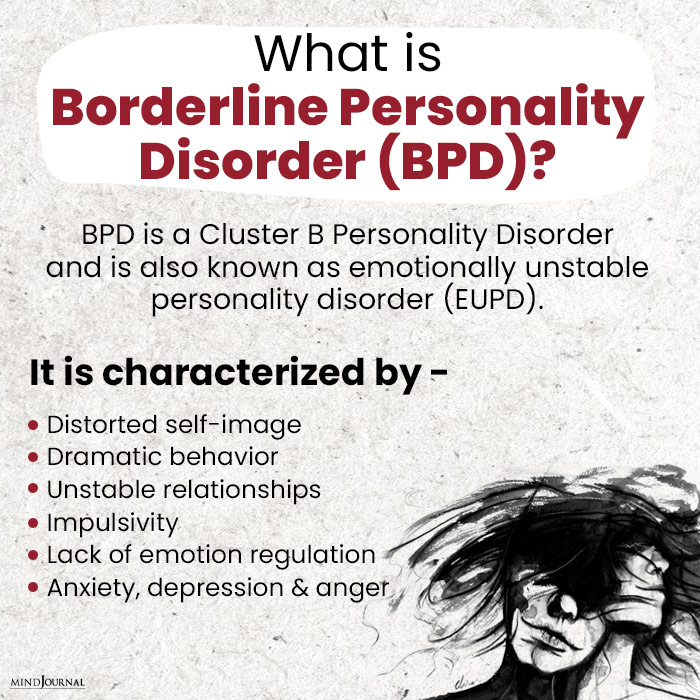
BPD is primarily a personality disorder marked by emotion regulation problems, unpredictable behavior, distorted self-image, and unstable relationship patterns.
Often identified as an emotionally unstable personality disorder (EUPD), it is a Cluster B Personality Disorder characterized by unpredictable, highly emotional, and dramatic thought and behavior patterns.
Sufferers usually experience strong emotions for long periods of time and find it hard to manage or stabilize their feelings and mood. Onset typically occurs during adolescence or early adulthood.
“BPD is characterized by extreme sensitivity to perceived interpersonal slights, an unstable sense of self, intense and volatile emotionality, and impulsive behaviours that are often self-destructive,” explains a study.
When left untreated, borderline personality disorder symptoms can impair a person’s ability to function in daily life and adversely affect their education, career, personal life, social interactions, and personal relationships.
Borderline personality disorder can also lead to risky behavior including self-harm and suicidal tendencies. However, with early diagnosis and effective treatment involving psychotherapy and medication, the symptoms can be managed over time.
Related: What Is Quiet BPD? 9 Signs You Are Suffering In Silence
What are the characteristics of borderline personality disorder?
A person suffering from this condition may experience the following borderline personality disorder symptoms –
- Hypersensitivity to rejection
- Rapid mood swings
- Impulsive behaviors
- Episodes of severe anxiety, depression and anger
- Poor self-image and identity issues
- Interpersonal relationship problems
- Extreme emotional reactions to stressors
- Difficulty with self-regulation
Is borderline personality disorder a mental illness?
BPD is a serious mental illness and a personality disorder that involves an unhealthy and rigid thought pattern.
It is a “psychiatric syndrome” which involves fear of abandonment, feelings of emptiness, impulsivity, emotion dysregulation, irritability, risk-taking behavior, and self-injury “as well as unstable interpersonal relationships,” explains a 2016 study.
Although it is widely experienced by people with psychiatric disorders, healthy individuals can also experience borderline personality disorder symptoms. Hence, it is considered “an important public health issue.”
According to recent research, the condition is observed in about “1.6% in the general population and 20% in the inpatient psychiatric population.” It is also associated with different medical and psychiatric comorbid conditions.
People with BPD also suffer from considerable mortality and morbidity compared to other healthy individuals, states a 2018 study.
It adds “Borderline personality disorder (BPD) is a chronic psychiatric disorder characterized by pervasive affective instability, self-image disturbances, impulsivity, marked suicidality, and unstable interpersonal relationships as the core dimensions of psychopathology underlying the disorder.”
Related: How To Use Gestalt Therapy To Diagnose Personality Disorders
Why is borderline personality disorder called “borderline”?
As healthcare professionals initially believed that BPD lied “on the border” of two distinct conditions, namely psychosis and neurosis, the label “borderline” was used to define the psychological disorder.
The term was originally used in 1938 in the United States by psychiatrists Stern and Knight to identify patients who were believed to have a tendency to relapse to “borderline schizophrenia.”
A 2009 study explains “By identifying the tendency of certain patients to regress into ‘borderline schizophrenia’ mental states in unstructured situations, these authors gave initial clinical meaning to the borderline construct.”
Until the 1970s, the term was an “inconsistently used colloquialism within the psychoanalytic fraternity.” By 1980, borderline personality disorder was officially recognized as a personality disorder by the Diagnostic and Statistical Manual of Mental Disorders III (DSM-III).
However, today some experts feel that there is a need to rename the condition as the label “borderline” seems to be stigmatized and outdated.
What famous person has borderline personality disorder?
Although most celebrities and famous people do not typically speak out about their mental illness, here is a speculative list of well-known individuals who are suspected to suffer from certain borderline personality disorder symptoms:
- Vincent Van Gogh
- Princess Diana
- Jim Morrison
- Marilyn Monroe
- Angelina Jolie
- Britney Spears
- Brandon Marshall
- Amy Winehouse
- Ricky Williams
- Pink
- Courtney Love
- Lindsay Lohan
It should be noted that this is primarily a presumptive diagnosis and it is unclear if these individuals actually suffer from a borderline personality disorder.
Related: 7 Surprising Positive Aspects Of BPD
Borderline personality disorder vs bipolar disorder
What is the difference between borderline personality disorder and bipolar disorder? BPD and bipolar disorder are two distinctive and separate mental illnesses that are often confused to be the same as both conditions involve mood swings and impulsivity.
But both conditions are different, having separate diagnostic criteria and treatment. In bipolar disorder, sufferers experience episodes of both mania and depression. Bipolar also results in rapid changes in energy levels and mood and impairs daily functioning.
However, BPD patients experience intense emotional reactions, emptiness, anger and hypersensitivity.
Here are some observable differences between borderline personality disorder and bipolar disorder:
- The degree and intensity of mood swings are different in BPD and bipolar. BPD sufferers typically don’t experience manic episodes, which is common in bipolar disorder.
- In bipolar disorder, mood swings can last for days or weeks, but in BPD mood shifts are short lived and last for hours or days.
- People with BPD feel extreme emotional pain, hopelessness, anger and emptiness which are associated with mood swings. However, mood changes in individuals with bipolar disorder tend to be different as they experience depression and mania.
Related: Bipolar Disorder: 10 Facts You Should Know About It
Borderline personality disorder symptoms
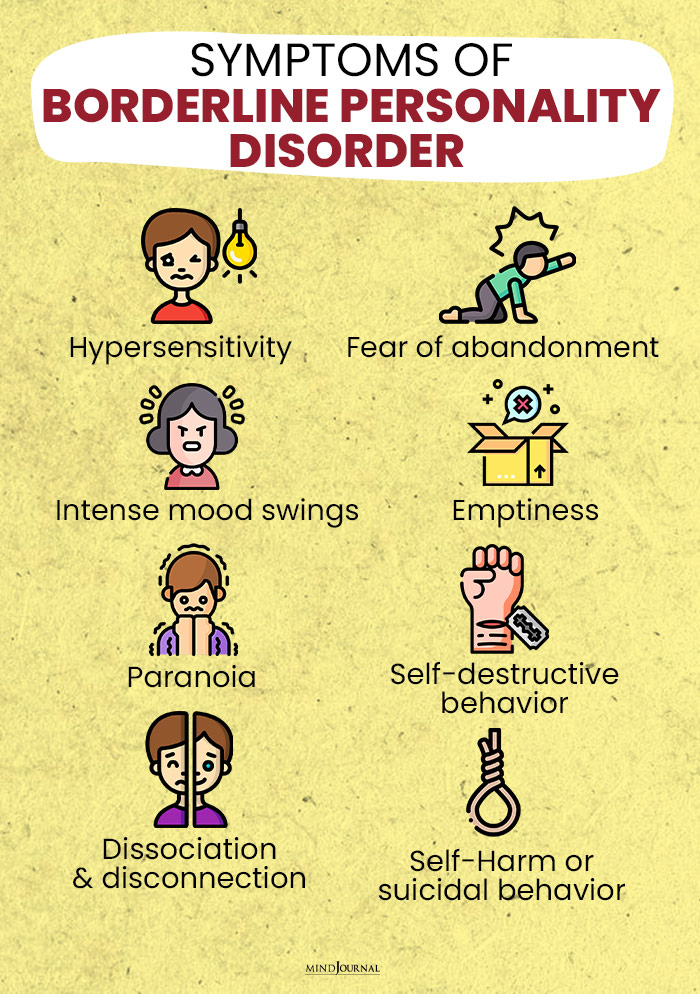
In order to better understand “what is a borderline personality disorder,” we need better clarity about how the condition may manifest in a sufferer.
Here are some of the most common borderline personality disorder symptoms:
- Extreme sensitivity
- Intense fear of abandonment
- Serious efforts to avoid real or perceived abandonment
- Unstable relationship patterns
- Rapidly shifting self-image and self-identity
- Risky, impulsive and self-destructive behavior, like gambling, unprotected sex, drug abuse etc
- Extreme mood and emotion swings
- Persistent feelings of emptiness
- Explosive and inappropriate anger & irritation
- Stress-related paranoia or suspicious thoughts
- Loss of contact with reality
- Intentional self-harm and suicidal behavior
- Intense anxiety and depressed mood
- Dissociation and disconnection from sense of identity or thoughts
- Difficulty trusting others
- Trouble regulating emotions
Apart from these, there may be some other signs of borderline personality disorder that may not be as severe or intense.
Related: 15 Everyday Habits That Gives Away Parts of Your Personality
What are the main causes of borderline personality disorder?
so what causes borderline personality disorder? Although the exact causes for the development of borderline personality disorder symptoms is unclear, it is believed that neurological, genetic, social, and environmental factors play a significant contributing role.
As identifying the causes is crucial to know “what is a borderline personality disorder,” here are some of the most common and probable causes of BPD:
1. Genetics
BPD is a genetic condition and tends to run in families, according to studies. If you have a first-degree family member, like a parent or a sibling, or a relative with a personality disorder, then it is highly likely that you will also inherit and develop this condition.
According to a 2010 study, all personality disorders (PDs) classified in the Diagnostic and Statistical Manual of Mental Disorders (DSM) “are modestly to moderately heritable.”
2. Brain abnormalities
It has been observed that people with BPD tend to have certain abnormalities in parts of the brain that regulate emotion, aggression, and impulsivity.
Moreover, they may also have different levels of brain chemicals, like serotonin, which may lead to impaired brain functioning.
3. Environmental & social factors
Individuals who experience mental, physical, or sexual abuse, neglect, abandonment, parental separation, poverty or other traumatic life events during childhood are at a higher risk of developing borderline personality disorder symptoms.
Moreover, growing up in abusive, invalidating and unstable relationships and hostile environments can also be contributing factors.
Related: 10 Signs You Had An Abusive Parent

What are the risk factors for borderline personality disorder?
Apart from the causes mentioned above, here are some common risk factors that can make someone vulnerable to developing borderline personality disorder symptoms:
- Difficult, unstable or turbulent family life
- Abandonment and neglect during childhood or adolescence
- Emotional, physical or sexual abuse
- Past traumatic experiences
- Lack of communication among family members
- Suffering from childhood conduct disorder
- Early separation from parents or primary caregivers
- Parental insensitivity
- Genetic predisposition
- Serotonin abnormalities
- Social relationship hypersensitivity
- Female gender
- Other psychiatric disorders, like anxiety, depression, bipolar disorder, eating disorders etc
- Substance abuse
Related: Are Mood Disorders the Price We Pay for High Intelligence and Creativity?
How does borderline personality disorder affect relationships?
People with BPD tend to have intense and short-lived relationships because being with them is like an emotional roller-coaster.
They repel loved ones and friends from their lives as a result of their insecurities, angry outbursts, fear of abandonment, mood swings, impulsive and irrational behaviors.
Family members of the people with BPD feel abused, helpless, guilty, trapped, and manipulated, which has a negative impact on the relationships.
What is the most effective treatment for borderline personality disorder?
Once you understand “what is borderline personality disorder” and identify borderline personality disorder symptoms in yourself or in a loved one, you should immediately consult a mental health professional and seek treatment.
A doctor will devise an effective borderline personality disorder treatment plan based on the severity of the symptoms of the patient. Treatment for BPD typically includes the following options –
1. Psychotherapy
Psychotherapy or talk therapy is considered to be the primary and first-line treatment for BPD.
Therapy enables the patient to identify their distorted thought, emotion, and behavior patterns, replace them with more positive ones, and learn helpful coping strategies for better emotion regulation.
Most commonly recommended therapies for this psychiatric disorder include –
- Dialectical behavioral therapy (DBT)
- Cognitive behavioral therapy (CBT)
- Psychodynamic psychotherapy
- Mentalization-based treatment (MBT)
- Schema-focused therapy
- Transference‐focused psychotherapy (TFP)
- Cognitive analytic therapy
- Systems training for emotional predictability and problem solving
One 2012 study states “Dialectical behavior therapy has the most supporting evidence compared with other psychotherapy techniques for the treatment of borderline personality disorder.”
Some forms of therapy, like group therapy, may involve family members, caregivers, and friends. During a session, a licensed and trained therapist will work with the patient to help them recognize unwanted behaviors, change them and gain new perspectives.
2. Medications
A mental health professional may also prescribe certain medication along with therapy in order to treat specific borderline personality disorder symptoms like mood swings, anxiety, and depression.
A doctor may prescribe –
- Antidepressants
- Antipsychotics
- Anti-anxiety medications
- Mood stabilizers
- Anticonvulsants
According to a 2013 study, “Atypical antipsychotics and anticonvulsants provide broader and more prominent benefits on some BPD symptoms, but are also associated with potential risks.”
Antidepressants and mood stabilizers help to manage depression and mood swings, while antipsychotic medication can help with aggression and disorganized thinking. Although medication can relieve certain symptoms, there is no specific medication that can treat borderline personality disorder.
Related: How To Cope When Someone You Love Has BPD
3. Hospitalization
In extreme cases when borderline personality disorder symptoms become too severe, intensive treatments or short-term hospitalization may be necessary.
A patient may be required to stay in a hospital temporarily unless their symptoms improve. A doctor may also recommend hospitalization if the sufferer is showing suicidal behavior or engaging in self-injury.
Overcome borderline personality disorder
When treated properly under the guidance of a healthcare professional, borderline personality disorder symptoms tend to gradually improve and the sufferer can live a healthier, safer life.
However, when left untreated, this psychiatric disorder can worsen and lead to a higher risk of depression, substance abuse, self-harm & suicide.
If you or someone you know is showing the signs of BPD, then make sure to seek medical treatment immediately as it can empower you to lead a fulfilling and happier life.
Frequently Asked Questions (FAQs)
Does Megan Markle have a mental problem like borderline personality disorder?
Megan Markle in her interview with Oprah said how she experienced unhappiness when she was pregnant and felt distressed. This makes no claim she suffers from BPD.
Can an avoidant personality and a borderline personality have a successful relationship?
A person with an avoidant personality and their partner with borderline personality can have a successful relationship if they have healthy communication and accept their true selves.
What are famous documentaries about borderline personality disorder?
Aileen: Life and Death of a Serial Killer, Back from the Edge, Words of Hope, etc are some famous documentaries about BPD.
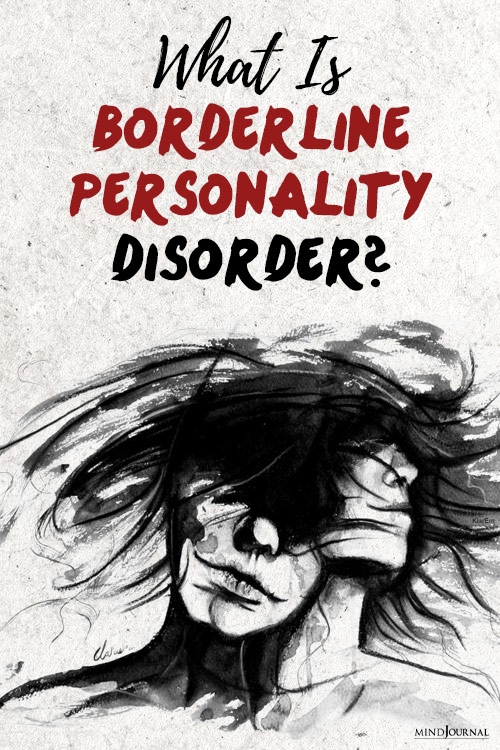
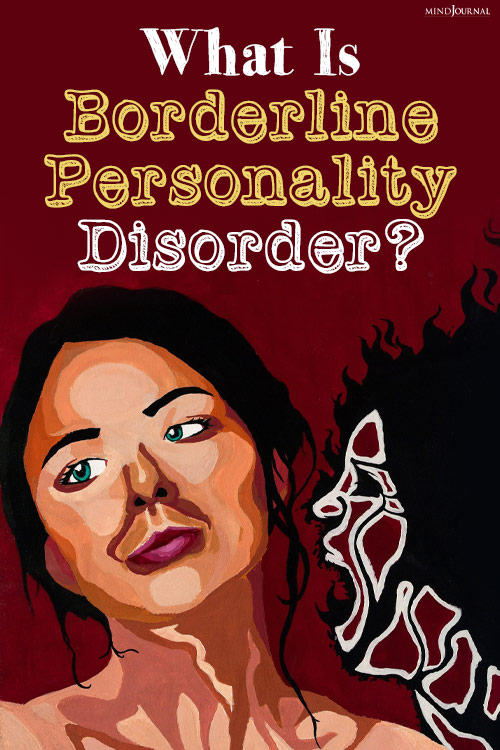
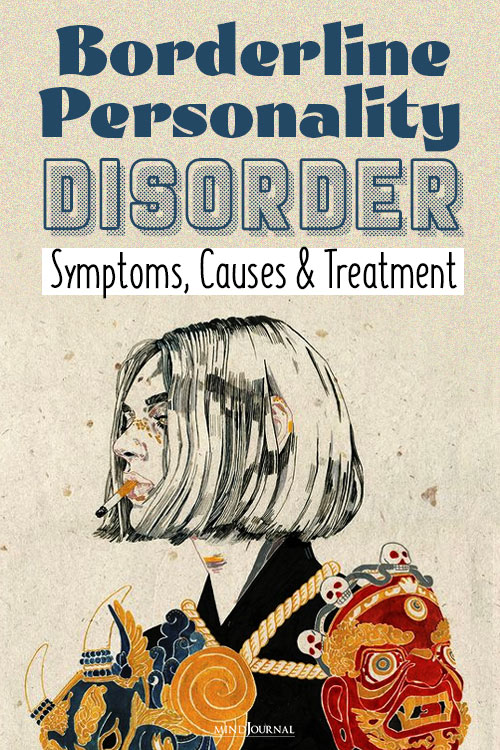
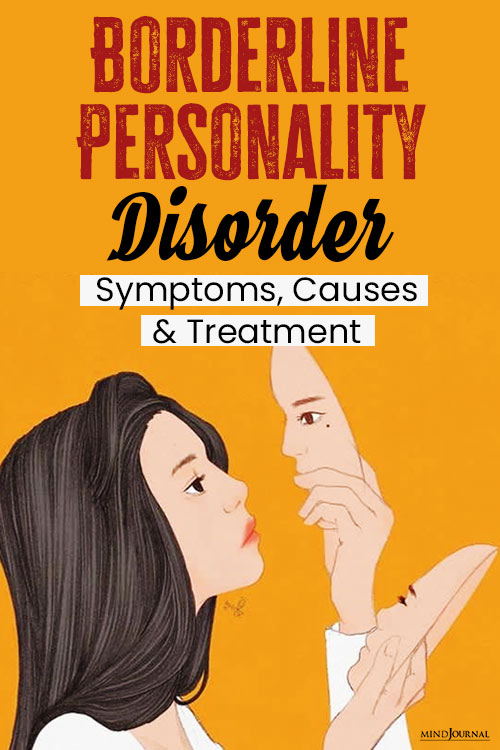


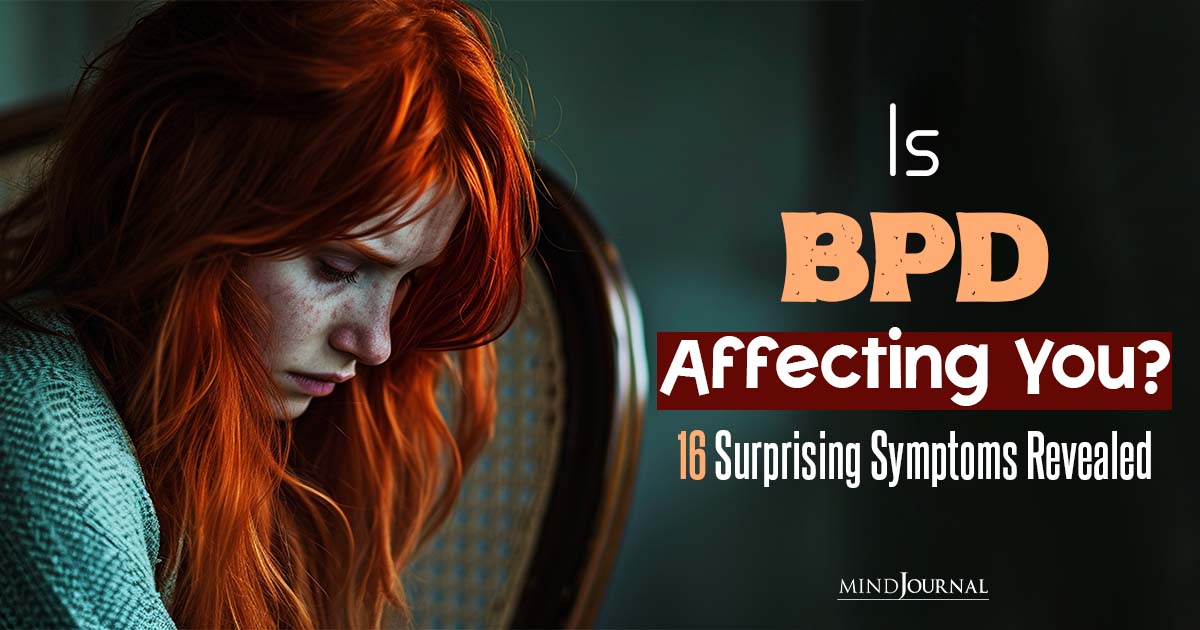







Leave a Reply